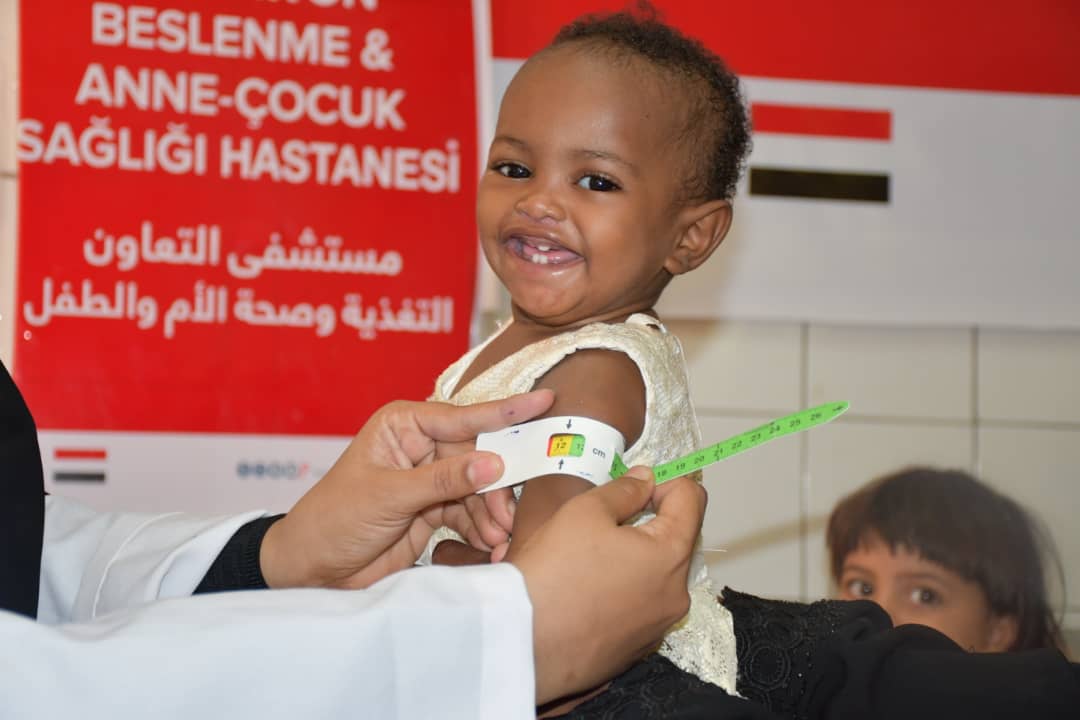Interventions of the project to promote multiple, integrated and sustainable nutrition in Taiz governorate

Yemen suffers from the world's worst humanitarian crisis that increasingly threatens the food security and livelihoods of millions of Yemenis. Food insecurity has many negative effects, including poor physical growth, reduced educational attainment and work productivity, and increased risk of disease and death.
Thus came the project to enhance multiple, integrated and sustainable nutrition and maternal and child health services for disadvantaged and conflict-affected communities in Yemen, which was implemented by HUMAN ACCESS and funded by Doctors Worldwide organization.
This project aims to provide emergency life-saving nutritional interventions to the most vulnerable groups (children under five and pregnant and lactating women), and to improve life-saving maternal and child health services for women of reproductive age and newborns in Taiz Governorate.
109,502 beneficiaries
The project targeted 3 centers in the districts of Taiz governorate, namely Mudhaffar and Al Qahirah, during the period from February to August of 2021, with funding from the Turkish Doctors Worldwide organization, and the total number of beneficiaries from the project’s interventions reached 109,502.
Three fixed health facilities were supported in the targeted districts. It is worth noting that the project included several areas:
Nutrition
The project in the field of nutrition included periodic examination of children under the age of five and pregnant women to detect cases of malnutrition, and provision of therapeutic and supplementary feeding services for children under the age of five and pregnant women, in addition to providing counseling sessions on feeding infants and children, benefiting 10,176 children and women.
Maternal and child health
In the field of maternal and child health, antenatal care services, family planning, and the use of modern contraceptive methods were offered, in addition to organizing health education activities, field visits, and health awareness, benefiting 56,402 people.
Minimum health services
It covers a range of programs, including medical consultations for women, obstetric services, emergency services, and vaccination programs for children, benefiting approximately 42,924 people. These interventions contributed to reducing the mortality rate resulting from malnutrition, improving the nutritional and health status, and raising awareness of reproductive health issues in the targeted areas.
Related articles
- Implemented by HUMAN ACCESS and funded by WFP, The food aid project is a haven for more than 65,000 families in Lahj and Taiz governorates
- 2180 conflict-affected families in Taiz governorate benefit from emergency relief project
- In partnership with Deniz Feneri Organization, Nearly 1000 displaced families in Taiz Governorate countryside benefit from food aid distribution
- Funded by (WFP), More than 53 thousand people benefit from malnutrition treatment project in July
- Funded by World Food Program (WFP), General Food Assistance alleviates the suffering of more than 65,000 families in Lahj and Taiz governorates
- In partnership with WFP Organizing training workshops for workers in General Food Assistance Project in Taiz


